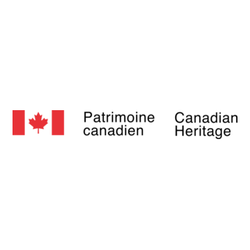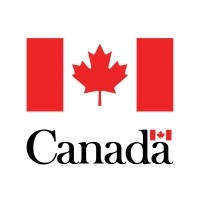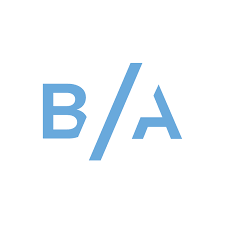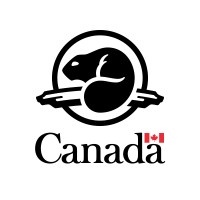
Closed
Museum Assistance Program - Collections Management
Last Update: December 4, 2025
Canada
Supports improved collections management in Canadian museums and heritage organizations
Grant and Funding
At a glance
Funding available
Financing goals
Integrate new technologies
Develop employee skills
Conduct research
See more
Eligible Funding
- Maximum amount : 200,000 $
- Up to 50% of project cost
Timeline
- Receipt of requests is now closed
Eligible candidates
Eligible Industries
- Information and cultural industries
- Educational services
- Arts, entertainment and recreation
Location
- Canada
Legal structures
- Non-profit
- Public or Parapublic institution
Annual revenue
- All revenue ranges
Organisation size
- 1 employees minimum
Audience
- Indigenous Peoples
- Persons with Disabilities
- Language Minorities
- Other Racialized Persons
- Rural or Northern Residents
- 2SLGBTQI+
- Canadians
- Youth (<40)
Non-profit candidates
Sector of operation
- Culture and Arts
- Diversity and Inclusion
Target groups
- Indigenous peoples
- People with disabilities
- LGBTQ+ community
- Rural / Remote communities
- Artists / creatives
- Nonprofits / charities
- Minority groups
Revenue structures
- All structures
Scope
- Municipal
- Regional
- Provincial
- National
Overview
The Museums Assistance Program – Collections Management provides up to $50,000 in funding to support projects that enhance knowledge, skills, and practices related to key museum functions. Eligible activities include improving collections management systems, policies, and storage, as well as supporting research, documentation, and the rematriation or repatriation of Indigenous cultural heritage.
Activities funded
- Improving the management of heritage collections through the development or implementation of systems, policies, procedures, or practices.
- Optimizing storage conditions for collections or upgrading collections management systems, including associated staff training.
- Cataloguing and documenting specific collections for defined purposes (not related to general ongoing operations).
- Developing or renewing emergency plans, protocols, or policies to support key museum functions, including those enabling the rematriation or repatriation of Indigenous cultural belongings and ancestral remains.
- Carrying out projects that support the sharing of best practices, professional development, and the creation of tools or resources that benefit multiple museums or heritage organizations.
Examples of admissible projects:
$ 49,700
Development of an emergency plan for heritage collection safety
$ 49,500
Digitization of Inuit artifacts and improved storage solutions
$ 47,450
Upgrade of environmental monitoring for historic costume collection
$ 49,000
Cataloguing Chinese Canadian community oral history collection
$ 49,000
Creation of toolkit for small museums’ collections management
$ 48,750
Repatriation planning for Mi’kmaq ceremonial objects collection
Eligibility
- The applicant must be an incorporated non-profit Canadian museum employing at least one paid professional staff (excluding students) and have policies for key museum functions.
- Alternatively, the applicant may be an incorporated non-profit Canadian service organization (such as a museum association) employing at least one paid professional staff (excluding students).
- Indigenous governing bodies or Indigenous organizations within Canada with a mandate to preserve and support First Nations, Inuit and/or Métis heritage are also eligible.
- Projects must have a clear start and end date, defined activities, and measurable results, and be related to collections management functions.
Who is eligible?
- Incorporated non-profit Canadian museums
- Incorporated non-profit Canadian service organizations related to the museum sector
- Indigenous governing bodies or Indigenous organizations within Canada with a mandate to preserve and support First Nations, Inuit and/or Métis heritage
Who is not eligible
- Federal departments, Crown corporations, and federal agencies.
Eligible expenses
- Pro-rated salaries and wages for staff working on the project (excluding reimbursable salaries from municipal and provincial governments).
- Travel expenses for project personnel (excluding attendance at professional development activities), in accordance with government travel rates.
- Honorariums, fees, and travel costs for consultants, Elders, Knowledge Keepers, and cultural practitioners, following permitted government rates.
- Equipment rental, shipping fees, promotion, and communication costs.
- Translation of materials aimed at the public into both official languages, and other relevant languages including Indigenous languages.
- Materials and supplies directly related to the project.
- Minor capital asset purchases (equipment), up to 25% of the project funding from the program.
- Purchase of software for project implementation.
- Staff training expenses related to the project.
- Hospitality and gifts specifically associated with traditional Indigenous ceremonies and protocols.
- Incremental project administration costs (maximum 15% of eligible project expenses).
- Project audit fees (where applicable).
- Other direct project-related costs as specified in the budget.
Eligible geographic areas
- All provinces and territories in Canada
Selection criteria
- Link between proposed activities and Program objectives.
- Relevance of the proposed activities.
- Community engagement (if applicable).
- Feasibility of the proposed activities, including management and planning.
- Capacity of the applicant organization to carry out the project, including financial stability, governance, and heritage activities.
How to apply
1
Review guidelines and eligibility
- Review the Application Guidelines for the Collections Management component
- Ensure your organization and project meet the eligibility criteria
2
Contact regional office
- Contact the nearest regional office of the Department of Canadian Heritage
- Discuss your project with a program advisor for preliminary assessment
3
Prepare application documents
- Prepare all required documents, including Application Form, Project Budget Form, comprehensive project timeline, and financial statements for the past two years
- Gather additional supporting documents as listed in the application checklist (letters of intent, agreements, quotes, proof of funding, etc.)
4
Complete and sign application
- Complete the application through the Canadian Heritage Funding Portal
- Ensure all required documents are attached and the application is signed by an authorized representative
- Indicate the order of priority if submitting multiple projects
5
Submit application
- Submit the complete application and supporting documents electronically through the Canadian Heritage Funding Portal by the deadline
- Alternative submission methods may be available upon request
Additional information
- Products developed for the public must be available in both official languages, and applicants are encouraged to include other relevant languages as appropriate.
- Funding requests for emergency assistance related to natural disasters are accepted year-round.
- Donated goods and services may be counted as in-kind contributions if they meet specific criteria.
- Recipients must publicly acknowledge financial support from the Government of Canada in both English and French in all communications materials and promotional activities.
Contacts
map-pam@pch.gc.ca
1-866-811-0055
Canada
Apply to this program
Frequently Asked Questions about the Museum Assistance Program - Collections Management Program
Here are answers to the most common questions about the Museum Assistance Program - Collections Management. This section explains what the program is, how much funding is available, eligibility requirements, application deadlines, and other important details to help you determine if this grant is right for your business.
What is the Museum Assistance Program - Collections Management?
How much funding can be received?
Who is eligible for the Museum Assistance Program - Collections Management program?
What expenses are eligible under Museum Assistance Program - Collections Management?
Who can I contact for more information about the Museum Assistance Program - Collections Management?
Where is the Museum Assistance Program - Collections Management available?
Is the Museum Assistance Program - Collections Management a grant, loan, or tax credit?
Apply to this program
More programs like this

Grant and FundingOpen
Museum Assistance Program - Exhibition Circulation Fund
Canadian HeritageSupports museums hosting travelling exhibitions and borrowing artefacts

Grant and FundingClosed
Celebrate Canada Funding Program
Canadian HeritageSupports community activities celebrating Canadian culture and diversity

Grant and FundingOpen
Movable Cultural Property Grants
Canadian HeritageSupports acquisition of nationally significant cultural property in Canada

Grant and FundingOpen
Exchanges Canada - Youth Exchanges Canada
Canadian HeritageSupports youth cultural and linguistic exchanges across Canada

Grant and FundingClosed
Commemorating the National Day for Truth and Reconciliation
Canadian HeritageSupports Indigenous-led initiatives commemorating Truth and Reconciliation Day

Wage Subsidies And InternsClosed
Youth Employment and Skills Strategy - Canada Summer Jobs Wage Subsidy
Employment and Social Development Canada (ESDC)Supports employers in creating summer jobs for Canadian youth

Grant and FundingClosed
Digital Museums Canada — Digital Projects
Digital Museums Canada (DMC)Funding for Canadian museums to develop accessible digital storytelling projects

Grant and FundingOpen
Disaster Financial Assistance Arrangements (DFAA)
Public Safety Canada (PSC)Provides federal financial assistance for large-scale natural disaster recovery

Grant and FundingExpert AdviceOpen
Business / Arts - artsvest Regional
artsvest; Business for the Arts; Council for Business & Arts in CanadaSponsorship training and mentorship for cultural nonprofits

Grant and FundingOpen
National Cost-Sharing Program for Heritage Places
Parks CanadaSupport for heritage site preservation and maintenance
Sign up to our platform to access the Museum Assistance Program - Collections Management information sheet for free
Get access to 4,000+ programs, practical guides, personalized alerts, and an AI assistant to support your grant applications.